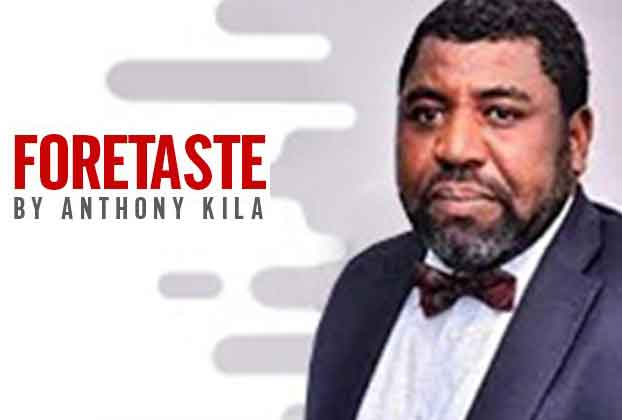“As we go out in search for what to eat, may we not encounter what will eat us” is a popular invocation turned prayer that my grandmother, Abigail Kila, introduced to me over five decades ago. Given the way she seemed to take me aside to render that invocation in what appeared to me then to be in hushed tones, I was for a very long time convinced that it was her original and personal invocation. You can imagine my amazement when I got to know more of the world and more of its inhabitants and one day, I discovered that others in the world knew the invocation too. Power of invocation aside, personal or general aside, it was also very fascinating to me because it conjured for me the image of a hunter or a warrior…
“As we go out in search for what to eat, may we not encounter what will eat us” is an invocation that did not seem to have worked for Godwin Emefiele on the 9th of June 2023 as within a space of 24 hours Emefiele metamorphosized from one of the most influential men in his country to a suspended banker and a detainee. There are conflicting accounts of the lives and days of powerful people in detention in Nigeria… Like most powerful people, once in detention, I suspect Godwin Emefiele though worried about his fate will however have a lighter schedule with less files to read and less approval to sign.
Between one interrogation and the other and maybe some visits if allowed, I thought I should suggest some books for him to read, to make it reflective of some of those he was banking for, I opted to enlist suggestions from the Twitterlandia. The list that came is what we can consider a people’s library for Godwin Emefele, here is a foretaste of that reading list.
A tweeter interested in religion, culture, traditions and relationship with love and humanity suggested the book of Joshua Chapter One. It is a biblical account of the installation of Joshua as the leader that took over after the death of Moses. Structured into 18 verses, the book treats us to how Joshua was legitimatized as a leader, his mandate, a promise of support from God, instruction to be courageous and a requirement to obey the laws. It is worth noting here that the Hebrew name Joshua which means deliverer, redeemer or saviour is also what was translated in Greek to Jesus.
A UK-based member of Twitterlandia interested in public policy, geopolitics, UK, Nigeria, human development, markets and health care suggested “An Inquiry into the Nature and Causes of the Wealth of Nations” by Adam Smith, “On the Principles of Political Economy and Taxation” by David Riccardo and “On Liberty” by John Stuart Mills.
Known more popularly as “The Wealth of Nations”, this is arguably one of the most important books on political economy, it was published in 1776 and not but, it is simply still very relevant today. The book is the magnus opera of the man many describe as one of the fathers of economics as we know it today and it deals with the theories of capital accumulation, growth and change. There are various copies and editions, whichever you chose to read, the intro and prefaces are not to be skipped.
David Riccardo’s “On the Principles of Political Economy and Taxation” was published in 1817 and it continues to be republished to this day, I think it is not as popular as it ought to be considering that it gives a very good introduction to the analysis of labour, capital and land, specialisation, competitive advantages and makes a very good case for free trade. The joke is that Riccardo is the economist of economists.
If I had my way, there are 15 books I would make mandatory reading for anyone whose office or position gives them the power to make decisions that can affect the lives of any 250 adults at a go, “On Liberty” by John Stuart Mills is one of such books. It is an enjoyable prose that explains and defends individual freedom, it also allows us to see the dangers of curtailing liberty and the risk of subjecting some to the whims of others. In this book, the reader will be treated to a delightful explanation of how a society that wants freedom and prosperity must allow her people to freely blossom, it also shows when and how the state should be allowed to restrain us from being who we want to be and do what we want to do.
“Evil Men” by James Dawes was suggested by an author, Islamic scholar, Islamic content creator and industrial chemist that helps people understand the Qur’an better. On a very personal note, “Evil Men” is a book that I have bought four times and people keep “borrowing” it without my permission. It is a sincere and clearly written reflection on and analysis of rape, torture and other atrocities carried out by soldiers during the Second Sino-Japanese War (1937–1945). The book starts as a collection of interviews but it quickly turns into a reflection on humanity and how we can be so bad. The author is forthright about his doubts and weakness. It shows how possible it is to turn evil.
The next time you give a loved or admired one gifts, please include a book or two.
Join me if you can on Twitter @anthonykila to continue these conversations.
Anthony Kila is Institute Director at CIAPS. www.ciaps.org.






